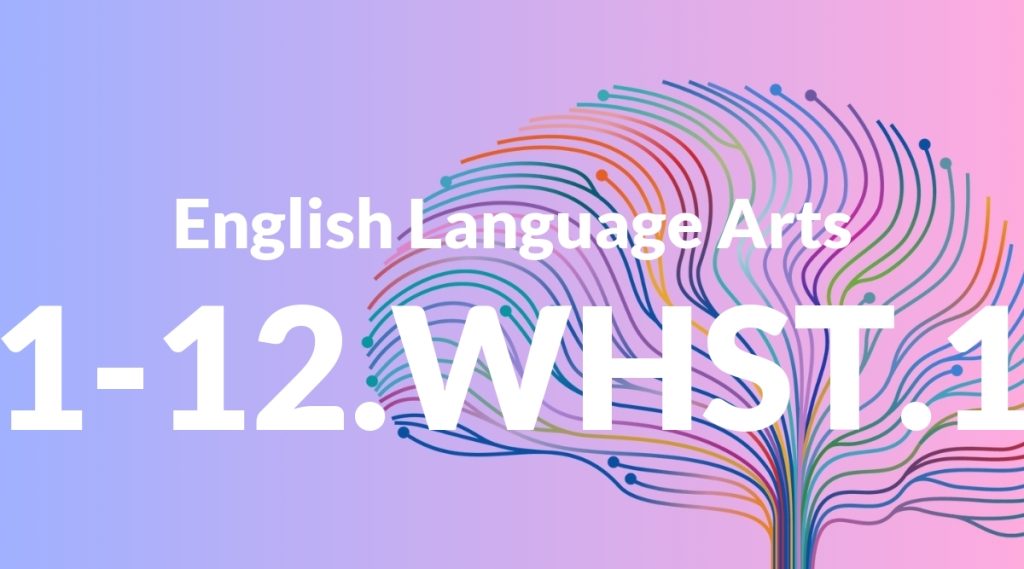Standard: 11-12.WHST.10 – Write routinely over extended time frames (time for reflection and revision) and shorter time frames (a single sitting or a day or two) for a range of discipline-specific tasks, purposes, and audiences.
Grade level: Grade 11-12
Subject: English Language Arts
Domain: Writing: History, Science & Technical Subjects
Teacher Overview
This standard emphasizes the importance of writing regularly and adapting writing styles to suit different tasks, purposes, and audiences across various disciplines. It is crucial for students to understand that effective writing is a key skill in both academic and real-world contexts. Students should have a good grasp of basic writing skills, including grammar and paragraph structure, and should be comfortable with the drafting and revision process.
Students will be able to effectively communicate complex ideas and tailor their writing to meet the needs of different audiences and purposes, preparing them for success in both academic and professional environments.
Common Misconception 1
Some students may think that writing for different subjects does not require different techniques. This is incorrect because each discipline has its own conventions and expectations for writing.
Intervention 1
Introduce students to a variety of writing samples from different disciplines and conduct writing exercises that focus on the specific requirements of each type.
Common Misconception 2
Another common misconception is that revision is only necessary for long-term projects. This is not true; even short-term writing tasks benefit from revision to improve clarity and coherence.
Intervention 2
Incorporate regular peer review and self-assessment activities for all writing assignments, regardless of length, to reinforce the value of revision.
Prerequisite Knowledge
Students should have a foundational understanding of basic writing skills, including grammar, sentence structure, and paragraph organization. They should also be familiar with the concepts of drafting and revising written work.
Subsequent Knowledge
After mastering this standard, students will develop advanced writing skills that allow them to effectively communicate complex ideas across various disciplines. They will be able to tailor their writing to specific audiences and purposes, enhancing their ability to succeed in both academic and professional settings.
Instructional Activities
- Peer review sessions
- Writing workshops focused on different disciplines
- Drafting and revising essays
- Creating technical documents or manuals
- Writing lab reports or research papers




